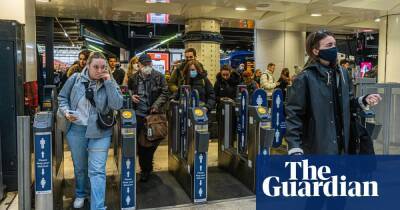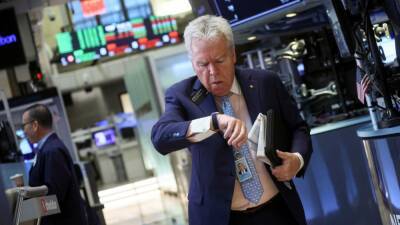UK credit card borrowing surges amid cost of living crisis
A surge in credit card borrowing last month has prompted concerns that low-income households are turning to expensive forms of lending to cope with rising costs of food, clothing and fuel.
Figures from the Bank of England showed credit card borrowing jumped by £1.5bn in February to push the total amount of unsecured lending up by 90% on the prior month to £1.9bn.
The central bank said the rise pushed the annual growth rate for all forms of unsecured credit from 3.2% to 4.4% – the highest rate of expansion since February 2020 – to push the total outstanding balance of consumer credit to £199.5bn.
With shoppers turning to cheaper supermarkets such as Lidl and Aldi to make ends meet and increasing numbers of families saying they are being forced to choose between eating and heating, anti-poverty charities said it was worrying that consumers were spending more on credit cards.
Joanna Elson, the chief executive of the Money Advice Trust, the charity that runs National Debtline and Business Debtline, said the figures provide “an indicator of the underlying challenges households face in meeting the growing cost of living” as she called on the chancellor to provide more targeted help for hard-pressed households.
“Our concern is that more people will be pushed to credit to cover rising bills, which could be storing up problems further down the line when repayments are due,” she said.
She added that the lifting of the energy price cap on 1 April meant a squeeze on household finances was only going to worsen in the coming weeks.
“While the government’s council tax and energy bill rebates will help some households to a small degree, more targeted support is needed urgently,” she said. “As a minimum, this should include significantly
Read more on theguardian.com

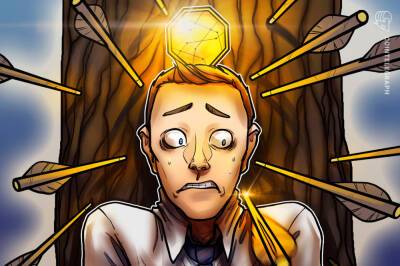
![Tron’s [TRX] latest rejection might have the following implications](https://finance-news.co/storage/thumbs_400/img/2022/4/27/23249_wqk4.jpg)
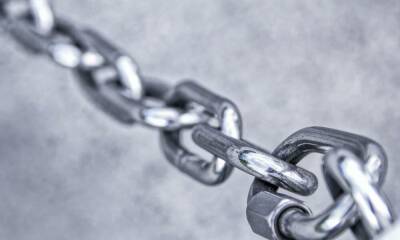




![Bitcoin Cash [BCH]: The how of where a profitable rebound is possible](https://finance-news.co/storage/thumbs_400/img/2022/4/27/23239_ltrv.jpg)

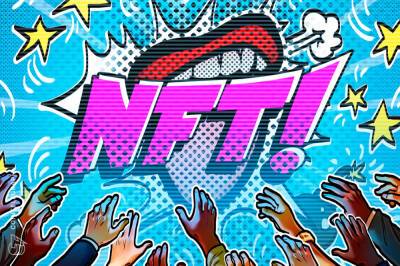
![How Avalanche [AVAX] investors should navigate this price range](https://finance-news.co/storage/thumbs_400/img/2022/4/27/23235_8nk8.jpg)

